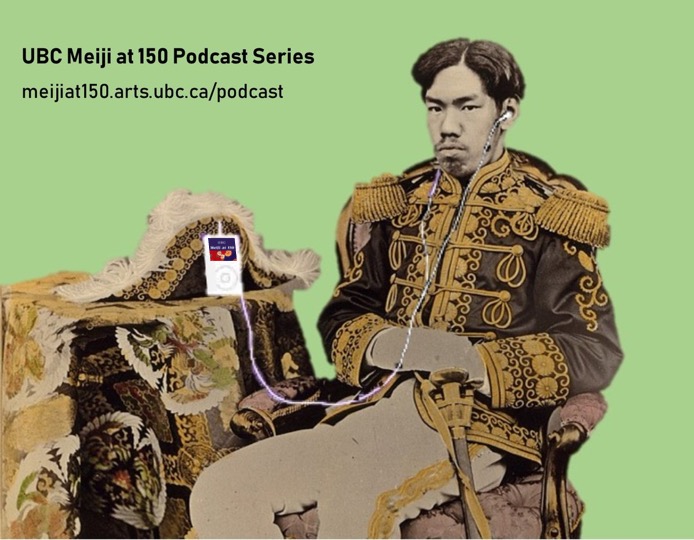
In the Meiji at 150 Podcast, host Tristan Grunow (UBC) interviews specialists of Japanese history, literature, art, and culture. Topics covered will range from the position of the Meiji Restoration and Meiji Period in each scholar’s research, to how they view the significance of the Restoration in Japanese and global history, and finally to how they teach the Meiji Period in their classrooms. Follow us to hear about the recent research of prominent scholars of Japan along with their pedagogical approaches to one of Japan’s most transformative periods.
Click here to view the Meiji at 150 Podcast Episode Guide
Episode 40 – Dr. Robert Hellyer (Wake Forest University)

In this episode, Dr. Robert Hellyer tracks the export of Japanese green tea to North America as an example of how global trade and commodity flows contributed to Japanese industrialization in the Meiji Period. We discuss efforts to promote the tea trade at both the state and local-levels, the push and pull factors of tea as a commodity in the North American market, and the place of Japan in the world economy before talking about Wake Forest’s own conference commemorating the Meiji Restoration.
Episode 39 – Dr. Annette Skovsted Hansen (Aarhus University)
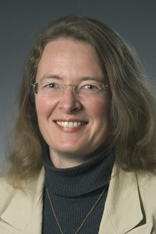
In this episode, Dr. Annette Skovsted Hansen transcribes the codification of Japanese National Language (Kokugo) in the Meiji Period, underlining the role of dictionaries and language teachers in Hokkaidō and Okinawa. We discuss the role of Meiji state intellectuals in language education, the origins of Japanese hyōjungo (common language) as well as Dr. Hansen’s more recent work on Japanese overseas development assistance.
Episode 38 – Dr. Katsuya Hirano (University of California-Los Angeles)
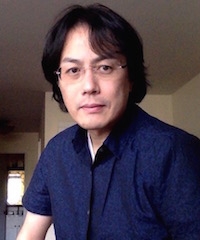 In this episode, Dr. Katsuya Hirano recounts Japanese settler colonization of Hokkaidō during the Meiji Period, underlining the racialization and dispossession of indigenous Ainu inhabitants. We discuss the role of capitalism and infrastructural development in Japanese imperial expansion, the impacts of the Meiji Restoration on the Ainu population, conditions for Ainu today, and the challenges of cultural commodification. (Transcript here).
In this episode, Dr. Katsuya Hirano recounts Japanese settler colonization of Hokkaidō during the Meiji Period, underlining the racialization and dispossession of indigenous Ainu inhabitants. We discuss the role of capitalism and infrastructural development in Japanese imperial expansion, the impacts of the Meiji Restoration on the Ainu population, conditions for Ainu today, and the challenges of cultural commodification. (Transcript here).
Episode 37 – Dr. Melek Ortabasi (Simon Fraser University)
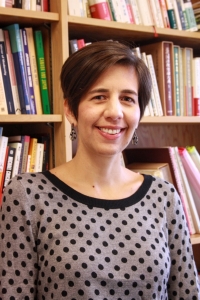 In this episode, Dr. Melek Ortabasi retells the story of folklore focusing on the works of Yanagita Kunio, and gives a comparative look at children’s literature in the Meiji Period. We discuss folklore themes in Japanese popular culture today, Meiji children’s education, and a comparative approach to teaching the Meiji Period.
In this episode, Dr. Melek Ortabasi retells the story of folklore focusing on the works of Yanagita Kunio, and gives a comparative look at children’s literature in the Meiji Period. We discuss folklore themes in Japanese popular culture today, Meiji children’s education, and a comparative approach to teaching the Meiji Period.
Episode 36 – Dr. Hiromu Nagahara (Massachusetts Institute of Technology)
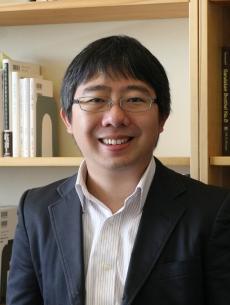 In this episode, Dr. Hiromu Nagahara charts the popular music of the Meiji, Taishō, and Shōwa eras, noting the politics of music and sounding the potential of songs to voice popular discontent. We discuss the formation of national music in the Meiji Period, the spread of protest tunes in the Popular Rights Movement, the lingering popularity of wartime propaganda anthems, and the counterculture sentiments of postwar jazz standards and Enka ballads.
In this episode, Dr. Hiromu Nagahara charts the popular music of the Meiji, Taishō, and Shōwa eras, noting the politics of music and sounding the potential of songs to voice popular discontent. We discuss the formation of national music in the Meiji Period, the spread of protest tunes in the Popular Rights Movement, the lingering popularity of wartime propaganda anthems, and the counterculture sentiments of postwar jazz standards and Enka ballads.
Episode 35 – Dr. Elizabeth “Betsy” Lublin (Wayne State University)
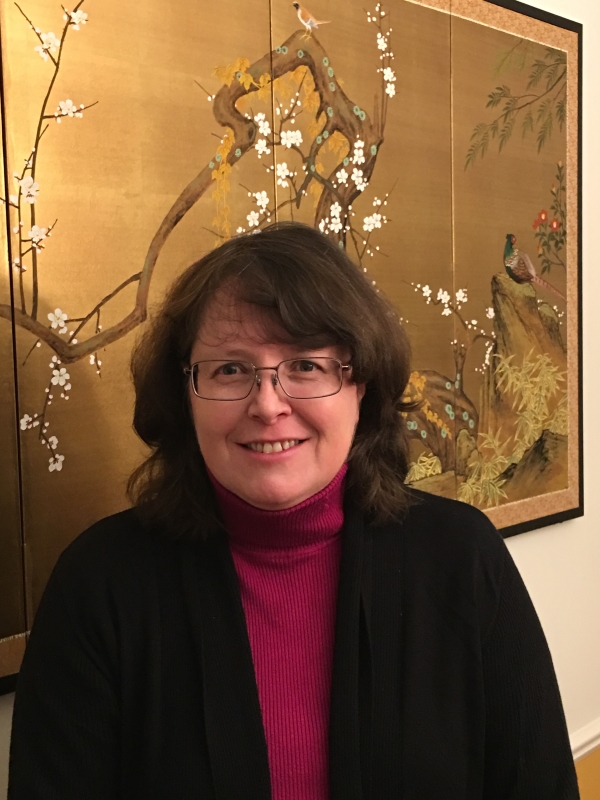 In this episode, Dr. Betsy Lublin outlines moral reform campaigns carried out by women in the WCTU during the Meiji Period as they sought to redefine civic morality and good citizenship. We discuss campaigns against prostitution, drinking, and smoking, the increasing prevalence of tobacco in Japan during the Meiji and Taishō Periods, and societal views of smoking.
In this episode, Dr. Betsy Lublin outlines moral reform campaigns carried out by women in the WCTU during the Meiji Period as they sought to redefine civic morality and good citizenship. We discuss campaigns against prostitution, drinking, and smoking, the increasing prevalence of tobacco in Japan during the Meiji and Taishō Periods, and societal views of smoking.
Episode 34 – Dr. Daniel Botsman (Yale University)
 In this episode, Dr. Daniel Botsman stresses the ruptures in Japanese society caused by the Meiji Restoration, especially as seen in the Meiji penal system, new conceptions of freedom during the Freedom and Popular Rights Movement, and the emancipation of Outcaste communities. We discuss the emancipatory proposals of Ōe Taku, peasant protests, notable connections between Yale and Meiji-period Japan, and the politics of commemorating the anniversary of the Meiji Restoration. (Transcript here).
In this episode, Dr. Daniel Botsman stresses the ruptures in Japanese society caused by the Meiji Restoration, especially as seen in the Meiji penal system, new conceptions of freedom during the Freedom and Popular Rights Movement, and the emancipation of Outcaste communities. We discuss the emancipatory proposals of Ōe Taku, peasant protests, notable connections between Yale and Meiji-period Japan, and the politics of commemorating the anniversary of the Meiji Restoration. (Transcript here).
Episode 33 – Dr. Alisa Freedman (University of Oregon)
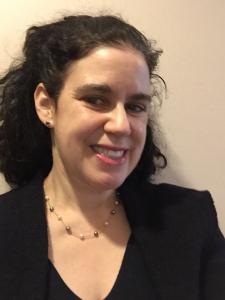
In this episode, Dr. Alisa Freedman charts the urban space and lived experiences of Tokyo during the late-Meiji, Taishō, and Shōwa Periods as represented in literature, film, and popular culture. We discuss train culture both then and today — touching on Tayama Katai, Densha Otoko (Train Man), “cell phone novels,” and Kawabata Yasunari — before talking about “modern girls” going around the world, from Hato bus guides in Tokyo to language teachers in North America.
Episode 32 – Dr. Masao Nakamura (University of British Columbia)
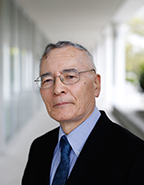
In this episode, Dr. Masao Nakamura discloses the impacts of the Meiji Period on Japanese business and financial practices, investing importance in the close relationship between the state and the public sector. We discuss how the Restoration affected family-based merchant firms like Mitsui and Sumitomo, question the success of Meiji “big push” economic policies, locate the origins of prewar Zaibatsu in Meiji-era financial practices, and speculate on the problems facing Japanese commerce today. (Transcript here).
Episode 31 – Dr. Helen Hardacre (Harvard University)
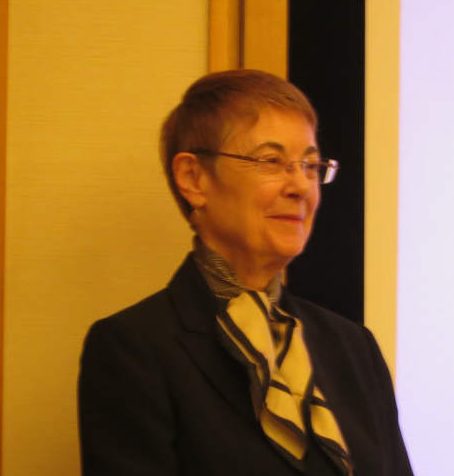 In this episode, Dr. Hardacre recenters religion in Japanese society in the Tokugawa and Meiji periods, laying the pre-1868 groundwork for the embracing of kami-workship after the Restoration and tracing the importance of religion in everyday life. We also discuss the meaning of Meiji at 150 along with future directions for the study of the Meiji Period. (Transcript here).
In this episode, Dr. Hardacre recenters religion in Japanese society in the Tokugawa and Meiji periods, laying the pre-1868 groundwork for the embracing of kami-workship after the Restoration and tracing the importance of religion in everyday life. We also discuss the meaning of Meiji at 150 along with future directions for the study of the Meiji Period. (Transcript here).
Episode 30 – Dr. Richard John Lynn (University of Toronto)
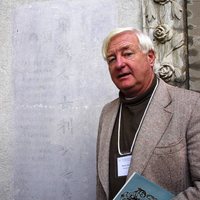
In this episode, Dr. Richard John Lynn reviews Japanese relations with China during the Meiji Period through the person of Chinese poet and diplomat Huang Zunxian. We discuss the Kanji culture of East Asian diplomacy and Sino-Japanese literary circles, changing Chinese views of the Meiji Restoration and Meiji-era progress, the possibility of a “Meiji model” for Chinese reform, and the retention of tradition in the face of modernization in both countries.
Episode 29 – Dr. Lisa Yoshikawa (Hobart & William Smith Colleges)
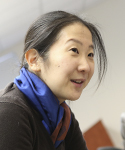
In this episode, Dr. Lisa Yoshikawa chronicles how professional historians in the Meiji and Taisho Periods legitimized imperialism as they attempted to elevate the discipline of history within Japanese academia. We discuss the mobilization of history and myth to justify colonialism, the development of academic history in the Meiji period, and scholars’ complicity with interwar illiberalism before considering the politics of historical memory along with legacies for Japanese historians and historiographies in the postwar and today. (Transcript here).
Episode 28 – Dr. Trent Maxey (Amherst College)
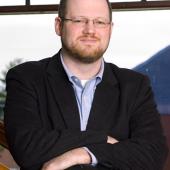
In this episode, Dr. Trent Maxey proclaims the history of early Meiji Government policies regarding religion in the context of national unification. We discuss the secularity of the Meiji state, the origins of State Shinto, reactions to “Hidden” Christians in the early Meiji Period, and anti-foreignism in the Tokugawa and Meiji periods before talking about Dr. Maxey’s more recent work on automobiles in Tokyo.
Episode 27 – Dr. Rebecca Corbett (University of Southern California)

In this episode, Dr. Rebecca Corbett infuses tea into the history of the Meiji Restoration, noting links between tea practice and the cultivation of femininity in the Edo and Meiji periods. We discuss changes in tea practice over the Edo and Meiji periods, the association of tea with Japanese “tradition,” and dilute essentialist ideas of the “Japanese-ness” of tea ceremony.
Episode 26 – Dr. Michael Wert (Marquette University)
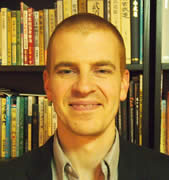
In this episode, Dr. Michael Wert (Marquette University) re-enacts the violence of the Meiji Restoration, combatting historiographical narratives of the Restoration as a “non-violent” or “bloodless” revolution. We discuss what happens to the losers of the Restoration, the post-1868 activities and status of ex-Bakufu officials, and the “Long Meiji Restoration” before reflecting on the politics of historical memory and commemoration today.
Episode 25 – Dr. Amy Stanley (Northwestern University)
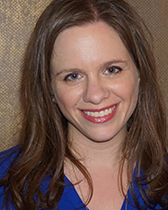 In this episode, Dr. Amy Stanley (Northwestern) outlines the impact of the Meiji Restoration on the practice of prostitution in Japan along with the social positions and roles of prostitutes and Geisha. We discuss distinctions between prostitutes and Geisha, the continuing popularity of “Geisha” and Geisha imagery today, and Dr. Stanley’s recent popular historical work on the city of Edo. (Transcript here).
In this episode, Dr. Amy Stanley (Northwestern) outlines the impact of the Meiji Restoration on the practice of prostitution in Japan along with the social positions and roles of prostitutes and Geisha. We discuss distinctions between prostitutes and Geisha, the continuing popularity of “Geisha” and Geisha imagery today, and Dr. Stanley’s recent popular historical work on the city of Edo. (Transcript here).
Episode 24 – Prof. Peter Kornicki (University of Cambridge)
 In this episode, Prof. Peter Kornicki (Cambridge) challenges the narrative of the Meiji period as revolutionary, instead underlining continuities in literary tastes, practices, and writing through the 1880s. We discuss the origins, meaning of, and alternatives to the term “Restoration,” literary transitions in the mid-Meiji Period, and popular discontentment and protest. (Transcript here).
In this episode, Prof. Peter Kornicki (Cambridge) challenges the narrative of the Meiji period as revolutionary, instead underlining continuities in literary tastes, practices, and writing through the 1880s. We discuss the origins, meaning of, and alternatives to the term “Restoration,” literary transitions in the mid-Meiji Period, and popular discontentment and protest. (Transcript here).
Episode 23 – Dr. Marnie Anderson (Smith College)
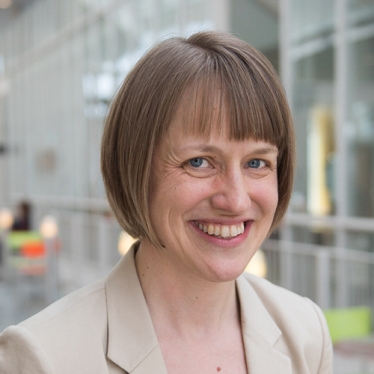 In this episode, Dr. Anderson (Smith College) canvasses the political agency of women’s groups during the Meiji period, changes in women’s place in public society, and women’s active participation in the construction of notions of femininity. We discuss the modern motivations of, and divisions within, actors in the 1880s Popular Rights Movement, and reflect on the ruptures and transformations of the Meiji period. (Transcript here).
In this episode, Dr. Anderson (Smith College) canvasses the political agency of women’s groups during the Meiji period, changes in women’s place in public society, and women’s active participation in the construction of notions of femininity. We discuss the modern motivations of, and divisions within, actors in the 1880s Popular Rights Movement, and reflect on the ruptures and transformations of the Meiji period. (Transcript here).
Episode 22 – Dr. Mark Metzler (University of Washington)
 In this episode, Dr. Metzler (Washington) views the Meiji Restoration from the perspective of global economic history. We discuss the impacts of global financial crises and international events on Japanese developments, the transformations of the Meiji Period, and the economic motivations of peasant protestors in the 1850s, 1880s, and 1910s. (Transcript here).
In this episode, Dr. Metzler (Washington) views the Meiji Restoration from the perspective of global economic history. We discuss the impacts of global financial crises and international events on Japanese developments, the transformations of the Meiji Period, and the economic motivations of peasant protestors in the 1850s, 1880s, and 1910s. (Transcript here).
Episode 21 – Gendering War & Peace in Modern Japan Roundtable
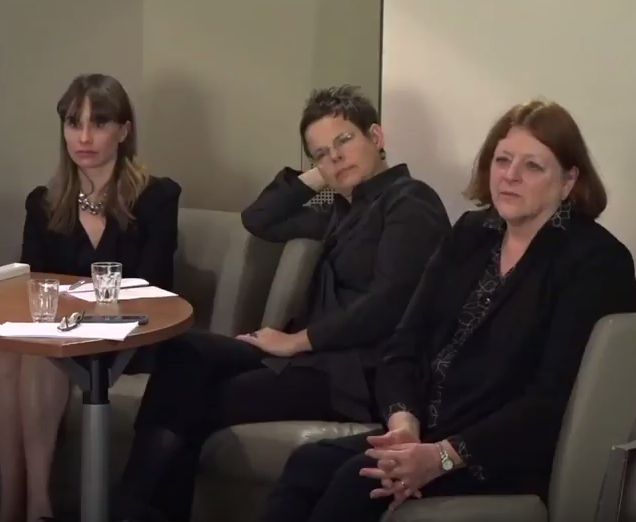 In this episode, Dr. Barbara Molony (Santa Clara), Dr. Sabine Frühstück (UCSB), and Dr. Hillary Maxson (Oregon) trace how gender norms and the position of women and children changed during the Meiji, Taishō, and Shōwa Periods. We deconstruct notions of masculinity, femininity, and childhood, map the unevenness of the “Good Wife Wise Mother” ideology, and debate postwar disruptions of prewar and wartime norms.
In this episode, Dr. Barbara Molony (Santa Clara), Dr. Sabine Frühstück (UCSB), and Dr. Hillary Maxson (Oregon) trace how gender norms and the position of women and children changed during the Meiji, Taishō, and Shōwa Periods. We deconstruct notions of masculinity, femininity, and childhood, map the unevenness of the “Good Wife Wise Mother” ideology, and debate postwar disruptions of prewar and wartime norms.
 Faculty of Art
Faculty of Art